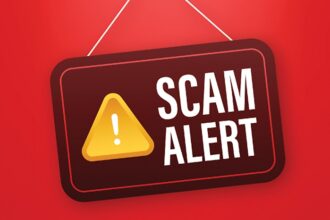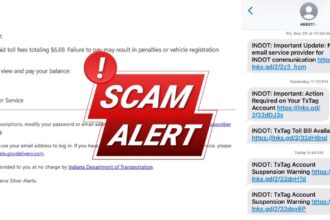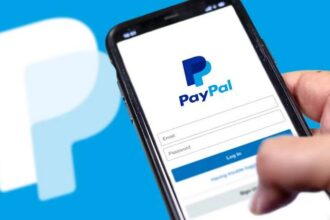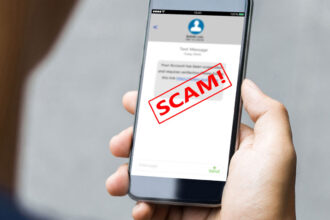Receiving an unexpected call from a debt collector can be unsettling. When that call comes from Aargon Agency, many consumers wonder if they’re dealing with a legitimate business or a potential scam. With increasing reports of sophisticated debt collection fraud, it’s more important than ever to know how to verify collection attempts and protect yourself. This comprehensive guide will help you understand Aargon Agency, recognize warning signs of collection scams, and know your rights when dealing with debt collectors.
Who Is Aargon Agency and Are They Legitimate?
Aargon Agency Inc. is an established debt collection company with offices in Las Vegas, Nevada and St. Peters, Missouri. The company primarily focuses on collecting medical debt and utility bills. While receiving a call from Aargon might be concerning, it’s important to understand that they are a real collection agency—not necessarily a scam operation.
However, legitimacy doesn’t guarantee accuracy. Many consumers report receiving calls from Aargon about debts they don’t recognize or that have already been paid. In a Reddit thread, one user described checking with their insurance company, medical providers, and credit reports, finding no outstanding claims despite receiving persistent calls from Aargon.
Before assuming any debt is valid, you should:
- Request written verification of the debt
- Check your credit reports for any related entries
- Contact your original creditor (medical provider, utility company, etc.)
- Verify the collection agency’s contact information against official sources
Aargon Agency maintains a website (aargon.com) with contact information. When in doubt, use the official contact details from their website rather than calling back the number that contacted you.
Red Flags: How to Spot a Debt Collection Scam
Whether dealing with Aargon or any other collection agency, being able to identify warning signs of a scam is crucial. According to the Office of the Comptroller of the Currency (OCC) and Consumer Financial Protection Bureau (CFPB), these red flags could indicate fraudulent activity:
- Threatening criminal charges or arrest: Legitimate debt collectors, including Aargon, cannot threaten to have you arrested for standard consumer debt.
- Refusing to provide information: Scammers often won’t give specific details about the debt or their company. Under the Fair Debt Collection Practices Act (FDCPA), collectors must provide debt verification within five days of initial contact.
- No physical address or contact information: Legitimate agencies always have verifiable business addresses and phone numbers.
- Demanding immediate payment through specific methods: Be wary if the caller insists on payment via wire transfers, prepaid cards, or gift cards.
- Seeking personal financial information: Legitimate collectors already have basic information about your debt. Be suspicious if they ask for complete bank account details or your full Social Security number.
- Calling at unusual hours: The FDCPA prohibits collectors from calling before 8 a.m. or after 9 p.m. in your time zone.
One Reddit user reported an Aargon caller claiming they needed to “update” an address before processing a claim—a tactic sometimes used to extract personal information or confirmation of identity from potential victims.
Your Rights When Dealing with Debt Collectors
Knowledge is power when facing collection attempts. The Fair Debt Collection Practices Act provides important protections that all collectors, including Aargon Agency, must follow:
1. Communication Restrictions
- Collectors can only call between 8 a.m. and 9 p.m. local time
- They must stop calling your workplace if you tell them your employer prohibits such calls
- They can contact you by mail, phone, fax, text, social media, and email
- Excessive calling (harassment) is prohibited
2. Your Right to Verification
You have the right to request written verification of any debt. This verification should include:
- The amount of the debt
- The name of the original creditor
- How to dispute the debt if you believe it’s not yours
3. Protection from Harassment
The FDCPA prohibits collectors from using harassment, false statements, or unfair practices, including:
- Threats of violence or harm
- Publishing your name as someone who refuses to pay debts
- Using obscene or profane language
- Repeated calls intended to annoy or harass
- Misrepresenting the amount or legal status of the debt
- Falsely implying they are attorneys or government representatives
If Aargon or any collector violates these protections, you can report them to the CFPB, FTC, or your state attorney general’s office.
The Pay-for-Delete Strategy: Does It Work with Aargon?
For consumers with legitimate debts in collections, removing the negative item from credit reports is often a priority. One strategy is requesting a “pay-for-delete” arrangement, where the collection agency agrees to remove the negative item in exchange for payment.
According to Reddit discussions, Aargon Agency has been known to honor pay-for-delete agreements, though they may be reluctant to provide this in writing beforehand. Users reported that Aargon typically offers to make the deletion letter available online through their website within 24 hours after receiving payment.
If considering this approach:
- Record the conversation if you’re in a one-party consent state
- Get specific details about when and how the deletion will occur
- Keep payment records and follow up if the item isn’t removed as promised
- Check your credit reports with all three bureaus to verify removal
It’s worth noting that while pay-for-delete arrangements may be effective, they’re somewhat controversial. Credit reporting agencies discourage this practice as it can affect the accuracy and integrity of credit reports. However, many consumers find it’s their most practical option, especially when facing time-sensitive situations like mortgage applications.
Protecting Yourself from Debt Collection Fraud
While Aargon Agency is a legitimate company, debt collection scams are increasingly common and sophisticated. Here are comprehensive steps to protect yourself:
Before Engaging with Any Collector:
- Request written verification: Always ask for proof of the debt before discussing payment.
- Research the company: Verify the collector’s legitimacy through their official website and business registrations.
- Check your credit reports: Review reports from all three major bureaus for any unexpected collections.
- Contact original creditors: Verify with the original company if the debt exists and was transferred to collections.
If You Suspect Fraud:
- Document everything: Keep detailed records of all communications, including dates, times, and summaries of conversations.
- Report suspicious activity: File complaints with:
- The Federal Trade Commission (FTC) at ReportFraud.ftc.gov or 1-877-382-4357
- Consumer Financial Protection Bureau (CFPB) at their complaint portal or 1-855-411-2372
- Your state attorney general’s office
- Internet Crime Complaint Center (IC3) for internet-related scams
- Protect your credit: Place a fraud alert or credit freeze by contacting one of the three major credit bureaus:
- Equifax: 1-800-525-6285
- Experian: 1-888-397-3742
- TransUnion: 1-800-680-7289
- Consider legal assistance: If you believe your rights have been violated, consult with a consumer rights attorney who specializes in debt collection issues.
Additional Precautions:
- Never confirm personal information to unsolicited callers
- Use caution with callback numbers; instead, use officially published contact information
- Don’t be pressured into immediate payment
- Consider setting up a Google Voice number for screening potential collection calls
Conclusion: Verify First, Pay Later
Receiving a call from Aargon Agency doesn’t automatically mean you’re being scammed, but it doesn’t guarantee the debt is valid either. The key is verification. Many consumers report receiving calls from Aargon about debts they don’t recognize or that have already been settled.
Before making any payments:
- Request detailed written verification
- Check your credit reports and account statements
- Contact your original creditor directly
- Know and assert your rights under the FDCPA
Remember that legitimate debts can usually be verified through multiple channels. If Aargon or any collector refuses to provide proper documentation, becomes aggressive, or exhibits other warning signs, report them immediately and consider seeking legal advice.
By staying informed and cautious, you can protect yourself from both fraudulent collection attempts and unnecessary payments on debts that may not be valid or legally collectible.


























